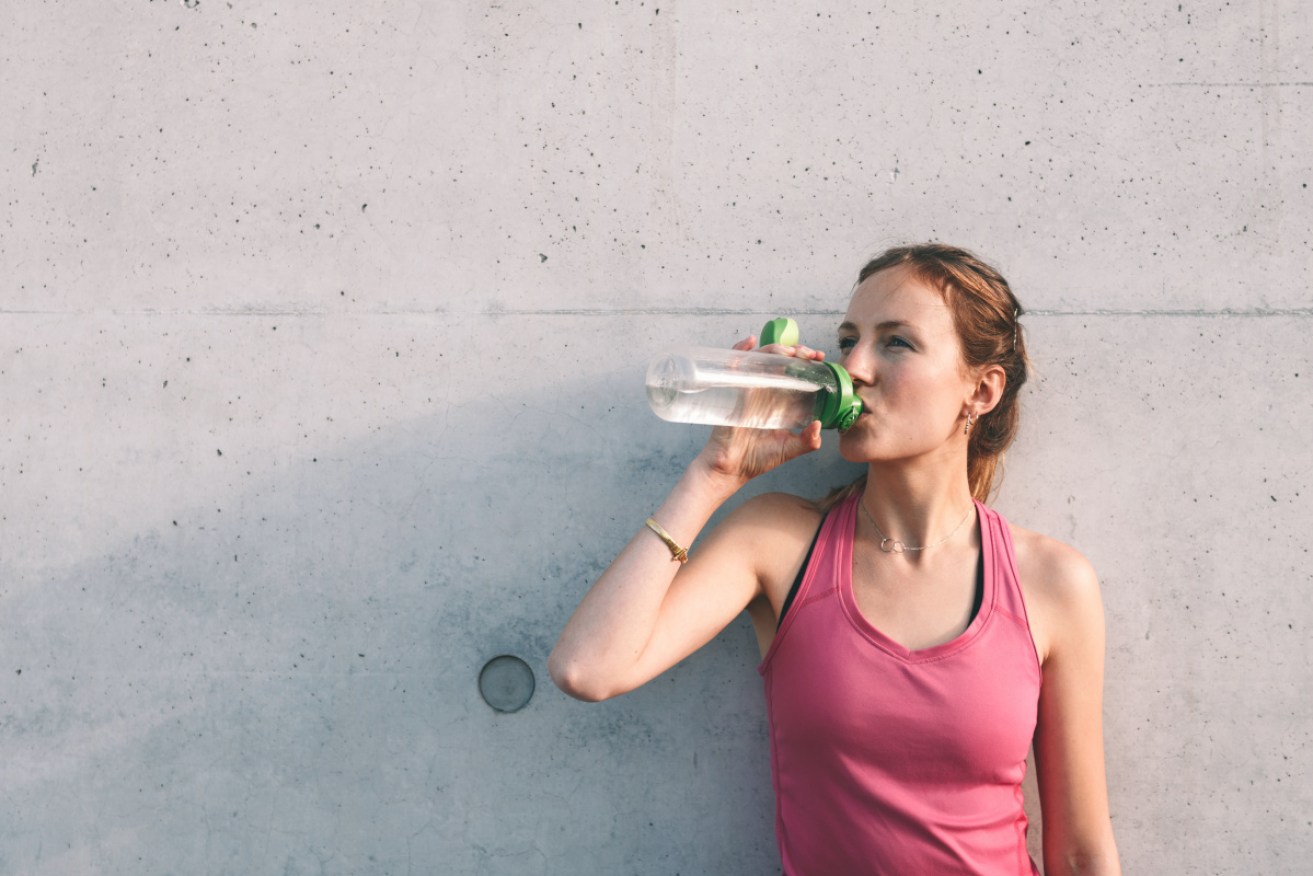Watching your water: What’s the right amount?


Forget about sticking to eight glasses a day, here's how much you should drink daily. Photo: Getty
How much water are you drinking every day?
Many of us won’t know the answer to that question, but it’s something we really need to be on top of – our water intake affects more than just our digestion, it’s vital for almost every process in your body.
Water is a vital nutrient for almost all our body’s processes and the importance of getting enough really can’t be overstated.
But while we’ve all heard the “eight glasses a day” message, it turns out the amount you need is not even as simple as that.
And not getting enough could be harming your body.
Dr Rebecca Williams is a human physiologist and research associate at University of Newcastle.
She said the amount of water we required was highly personal and situational.
“Hot or cold weather, how much physical activity you do, whether you’re male or female, all these influence how much we need to drink,” she said.
“You need to be aware of the times you need more. We’re just not great at drinking enough water.”
Dr Williams said many people confused thirst for hunger and – while we do absorb some fluids through our food – trying a drink of water before reaching for a snack can be a great strategy for keeping your intake up.
In fact, your size, age, gender, metabolism and level of activity all dramatically affect the amount of fluids we need in a day.
In children and adolescents, it is recommended they consume between 1 to 1.6 litres of fluid, not including food, every day.
For adults it’s more like 2.1 to 2.6 litres.
Men need more water than women because muscle mass stores carbohydrates and glycogen in the body and these need more water to metabolise properly.

Men and women need different intakes of water. Photo: Getty
Some research has even suggested that increased water intake can also serve to prevent certain types of cancers (such as colorectal, bladder and breast cancers), but Dr Williams warns against thinking flooding your system will have health benefits.
“When people see those conclusions, they automatically think it’s got to be the water [that’s preventing cancer growth],” she said.
“But when you think about it, people with a healthy nutrition behaviour are more likely to exhibit other healthy behaviours as well, and live a healthy lifestyle.
“They are probably drinking more water and eating more fruit and vegetables, for example.”
In other words, the findings are correlative, not causal: We know that people who drink more water get less cancer, but we don’t know why that is the case.
Funding for research and further studies is required to get to the bottom of why.
The Mother’s Day Classic fun run and walk in May raises money for breast cancer research and is something you can do to help get to the bottom of it.
It’s also a good way for you to start living a healthy lifestyle by becoming fitter and healthier.

The Mother’s Day Classic takes part every year to raise money for cancer research. Photo: Mother’s Day Classic
But before you start guzzling down as much water as you can, drinking too much water can also be bad for you.
In fact, it is believed that as little as six litres of water can kill a 75-kilogram person through water intoxication (sometimes referred to water poisoning).
Now that we know all this, how can we ensure that we are drinking the right amount for our specific bodies?
The only real method for telling if you’re having enough is to check your wee.
“You want a pale yellow colour,” Dr Williams said. “Not clear and not dark.”
Tips to maintaining a healthy water
- Carry water with you
- Set a reminder on your phone
- Log your intake using a mobile app
- Know it doesn’t have to be plain water – include a variety but avoid added sugar
- Try soda water or add fresh fruit to your water to give it a flavour
- Don’t binge it all at once, sip throughout the day.
The New Daily is a media partner of the Women in Super Mother’s Day Classic, Australia’s most inspirational cause driven event. In 2021, the Mother’s Day Classic is going local! On Sunday, May 9 participants will be getting active for breast cancer research in their own way or at one of many smaller, community driven local locations across Australia. Funds raised will be donated to the National Breast Cancer Foundation to help fund life-saving breast cancer research projects. Registrations are open here.